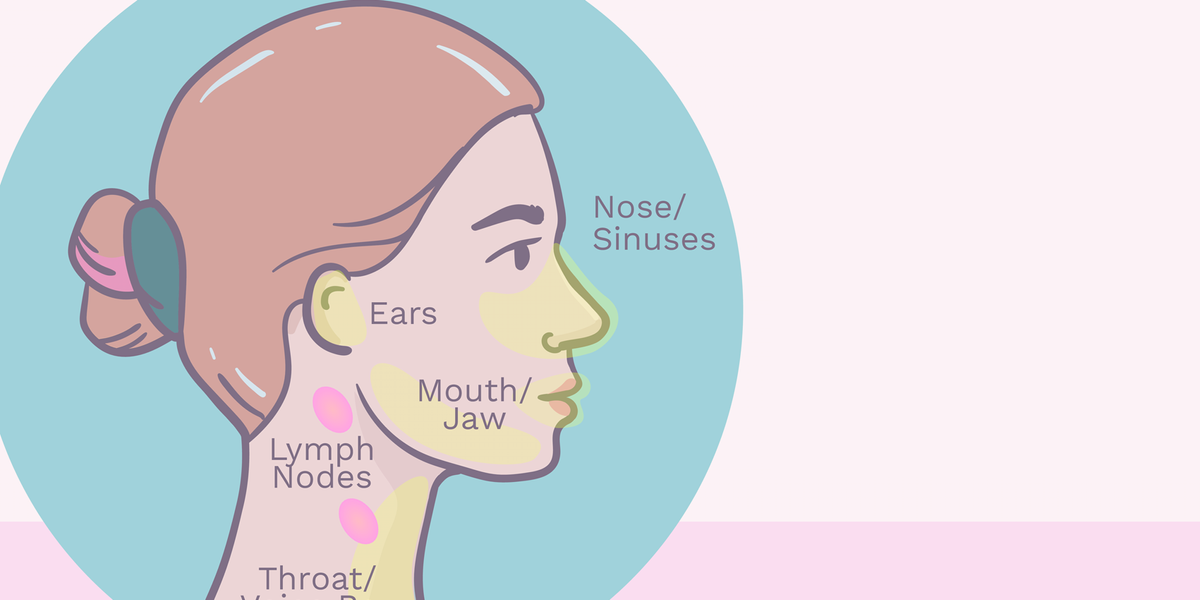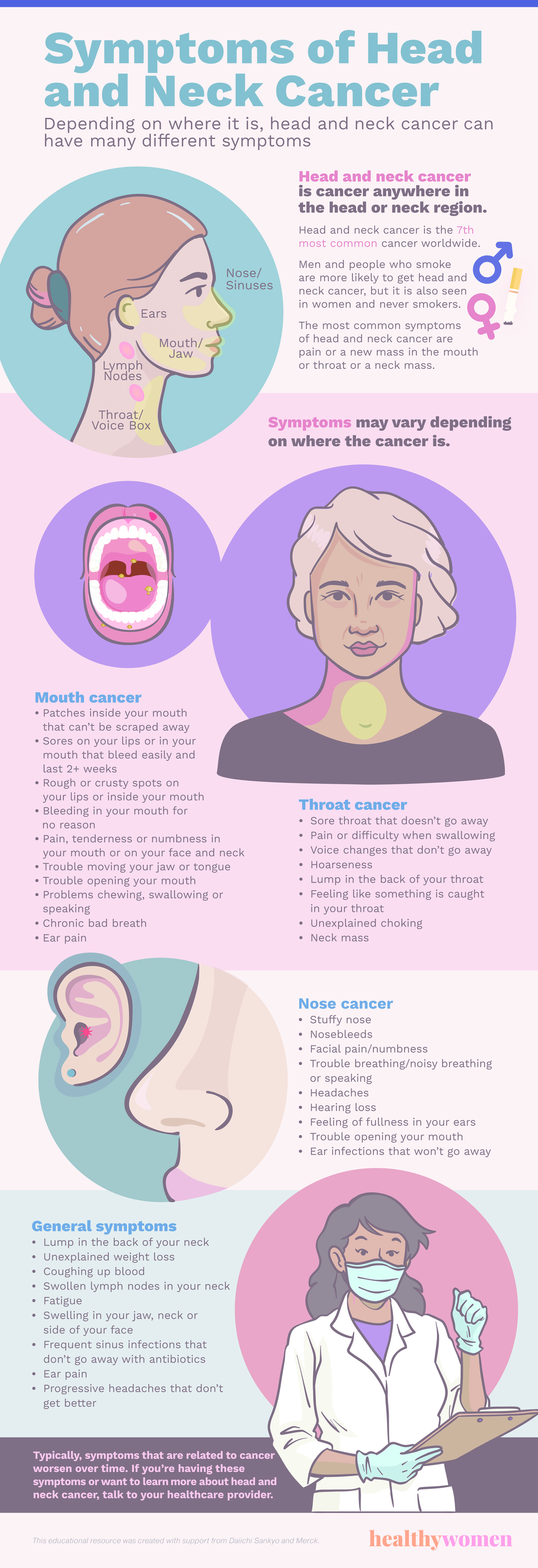
Medically reviewed by Eleni Rettig, M.D.
Head and neck cancer is cancer anywhere in the head or neck region.
- Head and neck cancer is the 7th most common cancer worldwide.
- Men and people who smoke are more likely to get head and neck cancer, but it is also seen in women and never smokers.
The most common symptoms of head and neck cancer are pain or a new mass in the mouth or throat or a neck mass.
Symptoms may vary depending on where the cancer is.
Mouth cancer
- Patches inside your mouth that can’t be scraped away
- Sores on your lips or in your mouth that bleed easily and last 2+ weeks
- Rough or crusty spots on your lips or inside your mouth
- Bleeding in your mouth for no reason
- Pain, tenderness or numbness in your mouth or on your face and neck
- Trouble moving your jaw or tongue
- Trouble opening your mouth
- Problems chewing, swallowing or speaking
- Chronic bad breath
- Ear pain
Throat cancer
- Sore throat that doesn’t go away
- Pain or difficulty when swallowing
- Voice changes that don’t go away
- Hoarseness
- Lump in the back of your throat
- Feeling like something is caught in your throat
- Unexplained choking
- Neck mass
Nose cancer
- Stuffy nose
- Nosebleeds
- Facial pain/numbness
- Trouble breathing/noisy breathing or speaking
- Headaches
- Hearing loss
- Feeling of fullness in your ears
- Trouble opening your mouth
- Ear infections that won’t go away
General symptoms
- Lump in the back of your neck
- Unexplained weight loss
- Coughing up blood
- Swollen lymph nodes in your neck
- Fatigue
- Swelling in your jaw, neck or side of your face
- Frequent sinus infections that don’t go away with antibiotics
- Ear pain
- Progressive headaches that don’t get better
Typically, symptoms that are related to cancer worsen over time.
If you’re having these symptoms or want to learn more about head and neck cancer, talk to your healthcare provider.
This educational resource was created with support from Daiichi Sankyo and Merck.
Credit : Source Post







